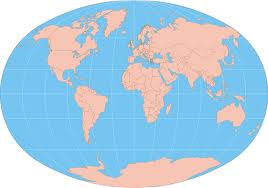Prime Minister Narendra Modi’s election just a few short months ago was greeted with renewed hope by India and people of Indian descent and heritage throughout the world.
And judging by the expected crowds who will be welcoming him to the United States this weekend, the honeymoon period continues.
 On Sunday, Mr. Modi will address a packed Madison Square Garden in New York City, and his remarks will be broadcast in the equally iconic Times Square. His election, and many of the actions he’s undertaken thus far in his term, have earned him a great deal of goodwill with Indian-Americans in New York and across the country.
On Sunday, Mr. Modi will address a packed Madison Square Garden in New York City, and his remarks will be broadcast in the equally iconic Times Square. His election, and many of the actions he’s undertaken thus far in his term, have earned him a great deal of goodwill with Indian-Americans in New York and across the country.
That goodwill also extends to the U.S. government and businesses, who are hoping for reforms that will solidify the U.S.-India partnership and help us fulfill the economic potential that can be achieved if we work together toward the same goals. Thus far, Mr. Modi has signaled his willingness to address many of these issues and has taken some encouraging steps in the right direction.
However, there are still many areas where India must act to open its markets and reassure trading partners that their investments will be respected and protected.
To be fair, many of these existing issues, like India’s Preferential Market Access policy on information technology and equipment, and compulsory licensing and patent revocations of innovative biopharmaceuticals, were implemented and carried out by Mr. Modi’s predecessor. While we remain optimistic that Mr. Modi will act in due course, we are concerned that they have not been addressed in the first four months of his Administration, and hope President Obama raises these issues when the two leaders meet in Washington next week.
There have been numerous opinion pieces published by thought leaders on these issues in the build-up to Mr. Modi’s visit, arguing that opening India’s markets and encouraging competition will increase foreign direct investment (FDI) and have long-term benefits for India’s economy. And yesterday, the Alliance for Fair Trade with India (AFTI) sent a letter to President Obama signed by 16 diverse industry associations urging him to “encourage Mr. Modi to level the playing field for U.S. companies in India.”
But it’s not just American industries that are hoping for a more business-friendly climate in India. Earlier this week, a broad mix of European trade groups sent a letter to European Council President Herman Van Rompuy and European Commission President José Manuel Barroso, urging the E.U. to engage with the Government of India to facilitate a better bilateral relationship and eliminate many of the same barriers to trade that U.S. companies are facing. Clearly, it’s in India’s best interest to work with foreign governments and businesses to find solutions to these issues and help build India’s innovative economy.
Upon his election, Prime Minister Modi declared that India was “open for business”, and he has seemed genuine about living up to his campaign promises and attracting the kinds of investment that will chart a new, positive course for India’s economy. In this view, we regard India as a potential partner, not an adversary, and stand ready to work with Mr. Modi and his government. We believe that a few simple reforms to India’s intellectual property policies would help pave the way for much greater investment and contribute to better health outcomes for Indian patients. For America’s biopharmaceutical companies, who have invested heavily in India, that means fostering an environment that lets us do what we do best: develop new and innovative treatments for the patients in India and across the world.
PhRMA and its member companies wish to extend a warm welcome to Mr. Modi, and sincerely hope we can work with his government to build lasting ties that will be mutually beneficial to both our patients and our economies.



 On Sunday, Mr. Modi will address a packed Madison Square Garden in New York City, and his remarks will be broadcast in the equally iconic Times Square. His election, and many of the actions he’s undertaken thus far in his term, have earned him a great deal of goodwill with Indian-Americans in New York and across the country.
On Sunday, Mr. Modi will address a packed Madison Square Garden in New York City, and his remarks will be broadcast in the equally iconic Times Square. His election, and many of the actions he’s undertaken thus far in his term, have earned him a great deal of goodwill with Indian-Americans in New York and across the country.

